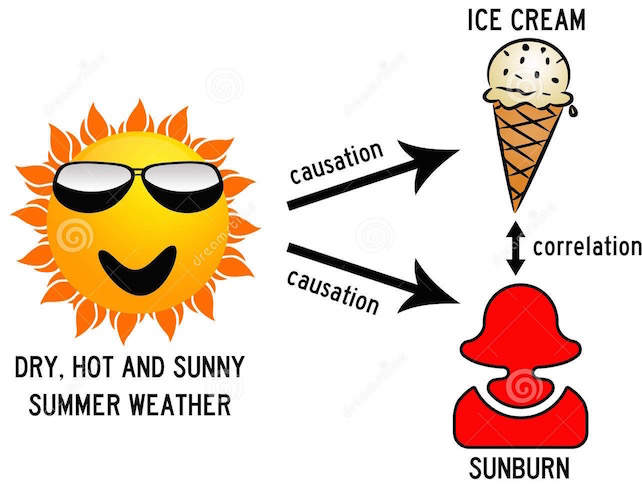“There’s something wrong!”, declared the analysis. Well, it must be true! They had a nifty graph and everything!

It’s tempting to assume that something is meaningful just because it can be graphed, or just because it made the headlines, (never more obvious to me than after two weeks of staring at political conventions). Those assumptions are often the result of what Dan and Chip Heath refer to as “The Spotlight Effect”.
“We are quick to jump to conclusions because we give too much weight to the information that is right in front of us, while failing to consider the information that’s just offstage…
…The spotlight only lights one spot. Everything outside it is obscured. When we begin to shift the spotlight from side to side the situation starts to look very different. And that, in essence, is the core difficulty in decision making.
What’s in the spotlight will rarely be everything we need to make a good decision, but we won’t always remember to shift the light. Sometimes, in fact, we’ll forget there’s a spotlight at all, dwelling so long in the tiny circle of light that we forget there’s a broader landscape beyond it.”
If we look outside the spotlight of this analysis of song themes we discover something else just offstage. Maybe these songs were written, sung, and produced for something other than filling a theological quota. Maybe they were written to inspire, touch the heart, and to be loved.
There is a natural and indisputable friction between art and science. Great stations understand that art and science need to be applied distinctly.
I know of a radio station that had this so confused that they actually had created a place in the hourly clock for what they called, “The God break”. (I’M NOT MAKING THIS UP, as Dave Barry would say.) Yep, at 20 past the hour you could tune in every hour and hear some deejay obligated to say something religious. Got to fill that quota, don’tchaknow!
This misuse of analytics is a reminder that a great radio station, like a magnificent piece of art or a much loved song, is never the result of paint by the numbers.
“The left hemispheres of our brains are wired for empirical, scientific, objective reality: absolute truth.The right hemispheres of our brains are sponges thirsty for impressions, symbols, metaphors, connections and patterns. These patterns can be auditory, visual or behavioral.
Auditory patterns are called music. Visual patterns are called art.
Behavioral patterns are called personality. The more complex the pattern, the deeper the beauty.”
~Roy Williams
The deeper the beauty. Hmm. Let’s see a graph of that!
I’m not suggesting that the lyrics to Christian music shouldn’t be meaningful and theologically sound, but to conclude there is “something wrong” because there are ten times more songs about love than fear infers that there is “something right” about some other possible ratio. Maybe we could do 50/50 in morning drive, and adjust to 70/30 when the kiddos get out of school!
The best radio stations are those that apply the left-brained science (music research, clock structure, format execution) to create compelling right-brained art; art that inspires, offers hope, and helps connects us to God and our values.
As long as we’re creating some charts, what’s the deal with all these songs about Christmas and none about The Feast of Unleavened Bread?






